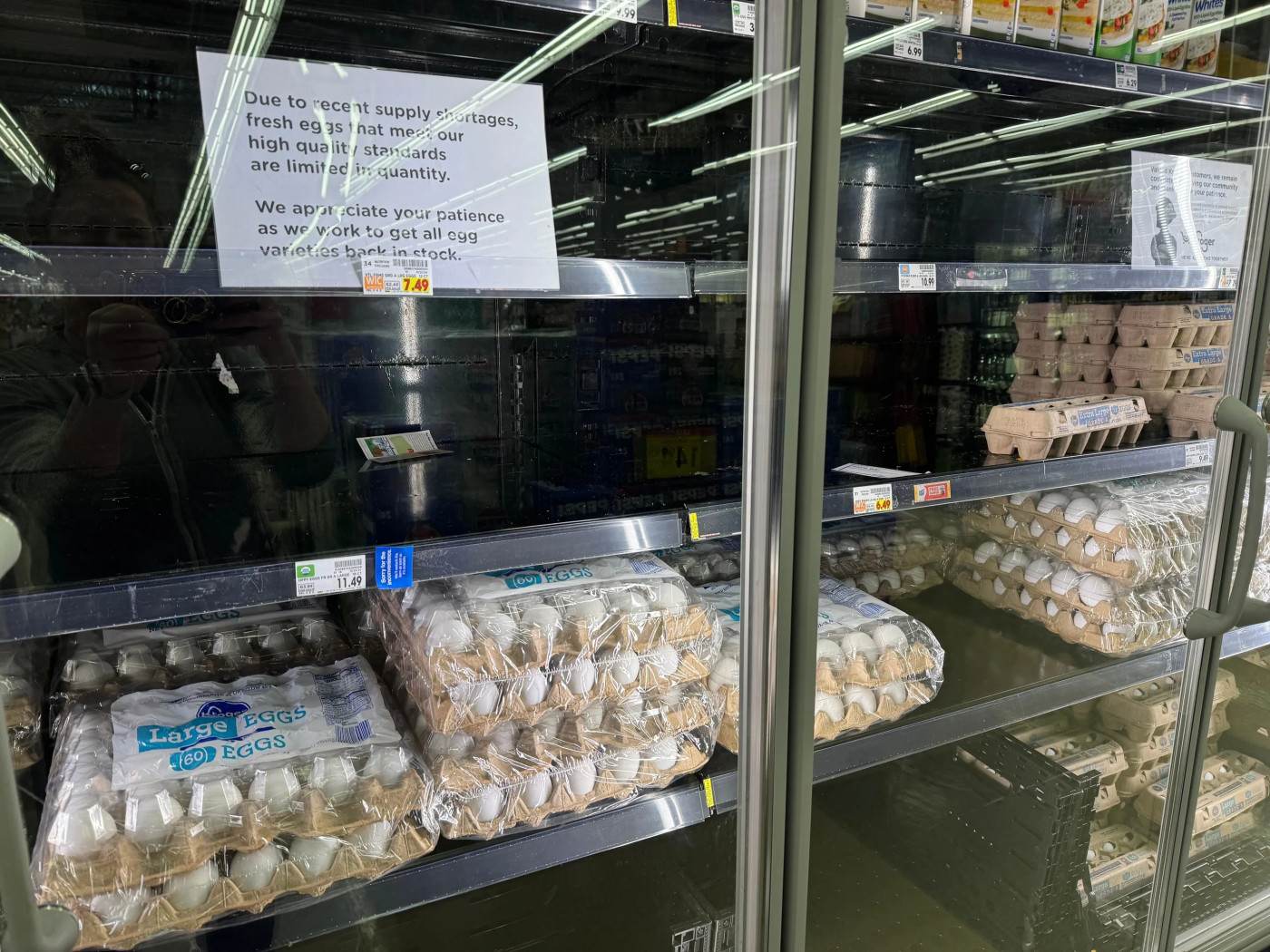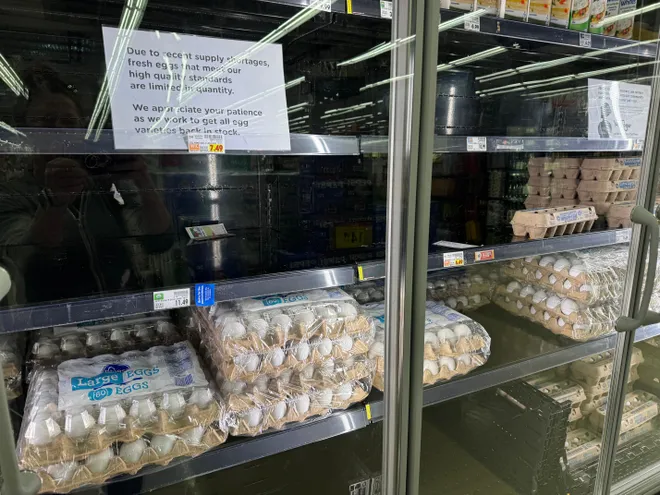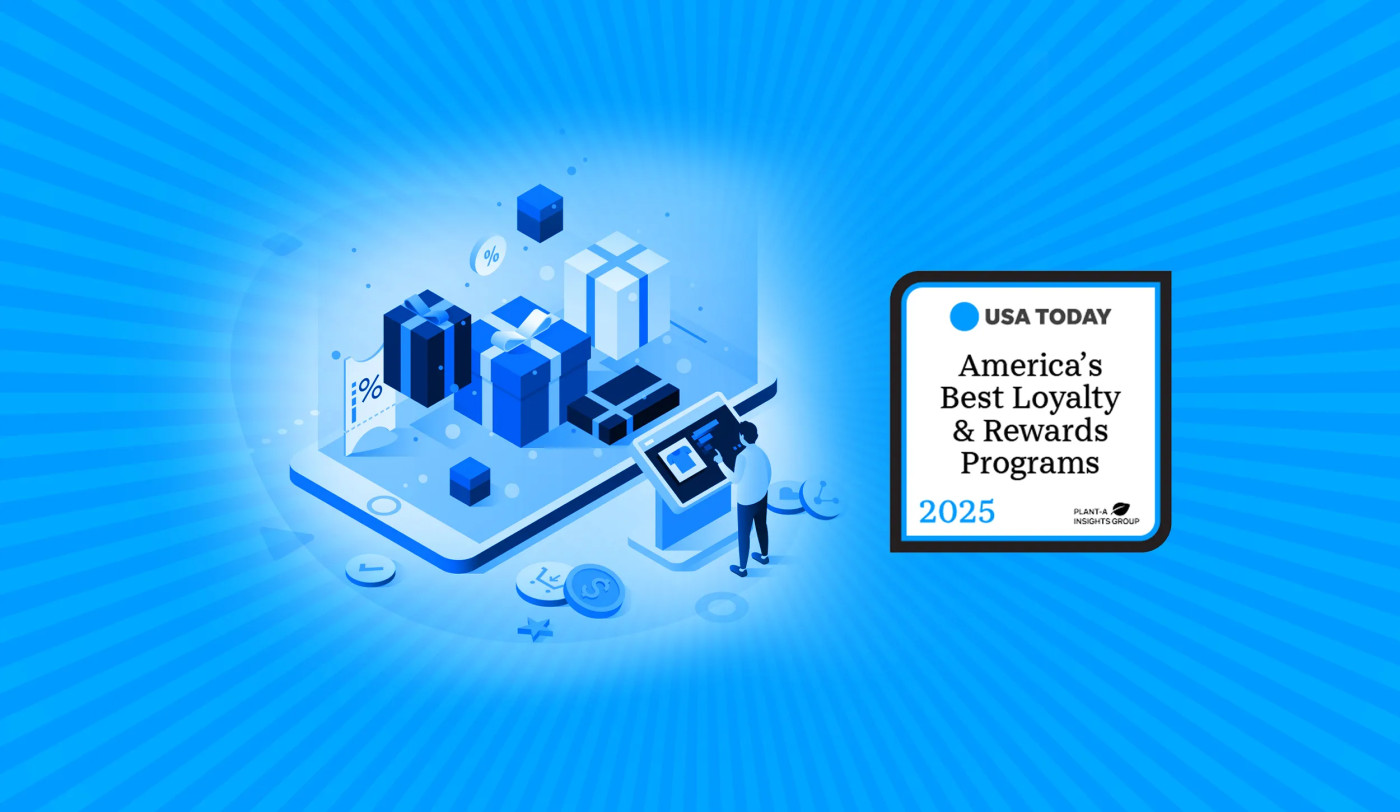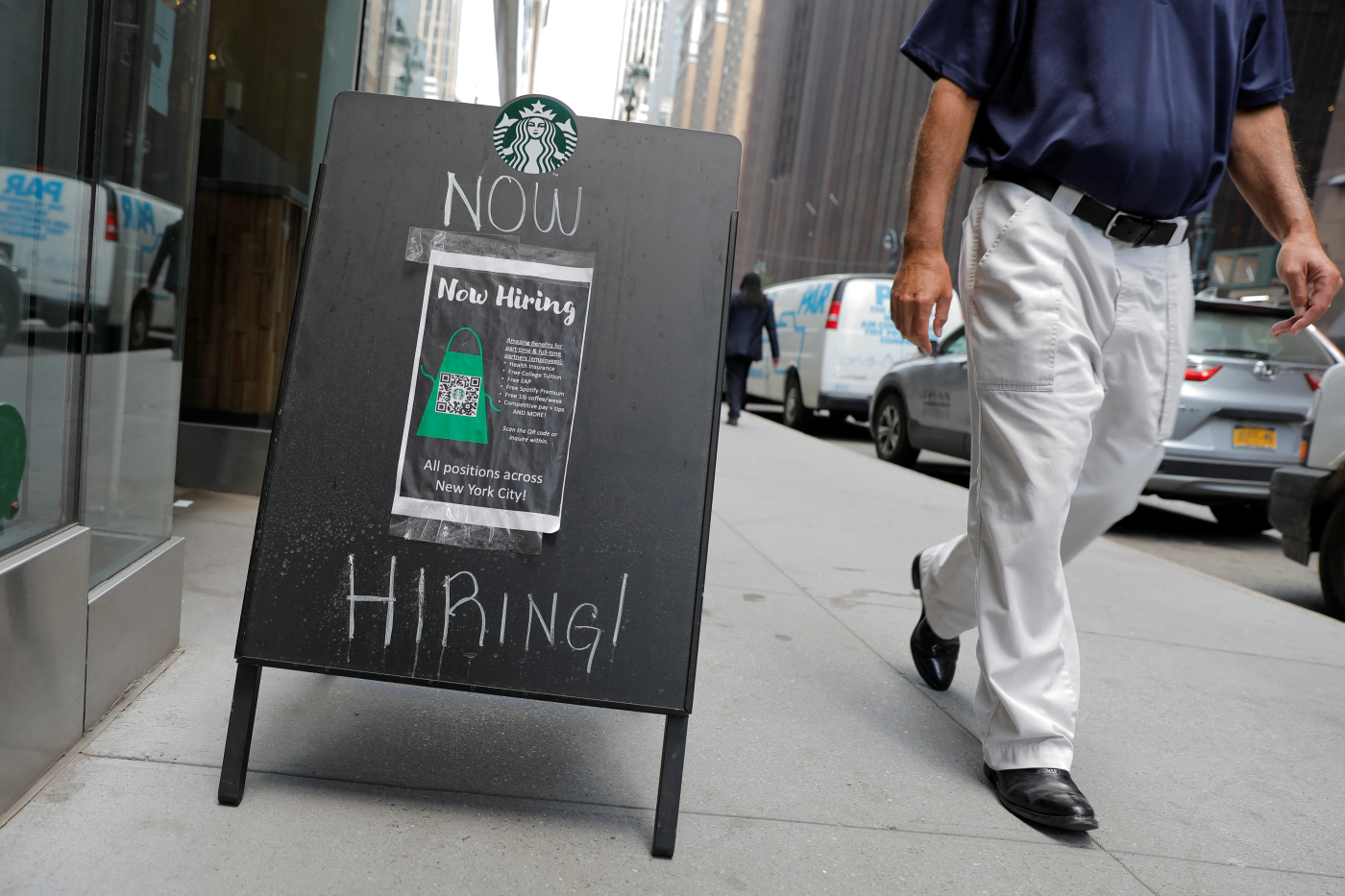
Wages are rising faster than inflation. Why are consumers still feeling the pinch?
By most accounts, wages have risen faster than inflation in the 2020s.
Yet, for many Americans, it doesn’t feel that way.
A closely watched Index of Consumer Sentiment, published by the University of Michigan, fell to 67.8 in February, its lowest mark since last summer.
A recent survey by WalletHub, the personal finance site, found that most Americans don’t think their bank accounts are keeping up with inflation. And a CBS poll found that two-thirds of consumers think President Donald Trump isn’t focused enough on prices.
All this consumer ennui comes at a time when inflation is not actually that high. Prices increased by 3% in the 12 months through January.
Capitalize on high interest rates: Best current CD rates
Consumer prices are about one-fifth higher now than before the pandemic, from inflation’s cumulative effects. But salaries are also rising, and by most measures, they are rising faster.
Wages outpaced inflation in the pandemic years
An interactive data tool launched by the Hamilton Project, part of the nonpartisan Brookings Institution, allows users to compare recent wage growth and inflation by several different measures. Bottom line: Almost any way you slice them, wages rose faster than prices from the end of 2019 through the end of 2024.
“If you start, basically, at the beginning of COVID, wages have grown faster than inflation by the standard measures,” said Gerald Cohen, chief economist of the Kenan Institute of Private Enterprise at the University of North Carolina at Chapel Hill.
Brookings researchers launched their wage tracker to “bring some light to a very muddled conversation,” said Wendy Edelberg, director of the Hamilton Project. “We started it because there were stories all over the press, some of them saying wages looked strong, and some of them saying wages looked really weak.”
As it turned out, analysts were looking at different measures and time periods, and sometimes reaching opposite conclusions. For example: hourly wages have mostly outpaced inflation since the first quarter of 2020 – but not since the second quarter, when earnings soared.
Last year, President Joe Biden and presidential candidate Kamala Harris labored to persuade voters that the historic inflation surge of 2022 was over, and that rising wages had effectively erased its effects.
But consumers were mad about prices, and they blamed the Democrats at the polls.
Donald Trump regained the presidency, in part, on a pledge to bring prices down. Now, many consumers fear he will push them up. In the University of Michigan survey, Americans said they expect inflation to rise to 4.3% this year under Trump’s lead.
Why are consumers still feeling the pinch? Here are five reasons.

Americans aren’t used to inflation
Inflation reached a 40-year high in mid-2022, a surge sparked by COVID-19. Before the pandemic, annual inflation hadn’t topped 5% since the Great Recession of 2008.
“For many people, this was their first time experiencing inflation,” said Ryan Sweet, chief U.S. economist at Oxford Economics.
The Federal Reserve aims for a target of 2% annual inflation: A level so low, consumers will forget about it.
“We want inflation to be to that point where people don’t really think about it, where it doesn’t impact your behavior,” Cohen said.
Consumers think inflation is unfair
The dramatic uptick in pandemic-era prices made consumers mad enough to evict the Democrats from the White House. Exit polls showed inflation loomed large in Trump’s triumph.
That impulse illustrates a fundamental difference between how consumers feel about inflation and wages, economists say.
“People tend to view inflation as something someone else inflicts on them,” said Joshua Gotbaum, scholar in residence at the Brookings Institution. “They view higher pay as something they earned themselves.”
Workers feel they deserve their wage increases, the economists said. When inflation hits, they look for someone to blame.
“The thing about inflation is, people think, ‘I’m getting ripped off,’” said Mark Zandi, chief economist at Moody’s Analytics.

Wages didn’t rise for everyone
While it’s true that wages rose faster than prices during the pandemic, those are averages, and they don’t apply to everyone.
Many Americans saw their inflation-adjusted wages decline between 2020 and 2024, economists say. And wages had stagnated for lower- and middle-income Americans before the pandemic.
"People were already sort of feeling strapped, so it's no surprise that people are feeling strapped now," said Elise Gould, a senior economist at the left-leaning Economic Policy Institute.
In the pandemic years, wages didn't outpace inflation by much. According to an analysis by the left-leaning Center for American Progress, a worker at the median income saw wages rise by only 3.4% between February 2020 and September 2024. Once you adjust for inflation, real wages “aren’t much higher than they were prior to the pandemic,” Zandi said.
Consider, too, that some prices rise faster than others. Housing prices rose by more than 25% between December 2019 and December 2024. Food prices rose by nearly 30%.
“For a person that spends much of their income on food and housing, this means their real wage might not have really kept up with their personal inflation,” said Jesús Fernández-Villaverde, an economist at the University of Pennsylvania.

Prices rose more on everyday items
When prices rise dramatically on items consumers buy regularly, like eggs, consumers take note.
Wages rose faster than inflation in the pandemic years, but egg prices rose faster than wages.
Spiraling grocery prices register for consumers whenever they visit the supermarket, said Brendan Duke, senior director for economic policy at the Center for American Progress.
“I buy eggs constantly,” Duke said.

Democrats and Republicans see things differently
In the months before the 2024 election, Republican consumers fretted about inflation, and Democrats chilled. After the election, the parties switched places.
“Democrats are more fearful of inflation now, and Republicans less so,” said Skanda Amarnath, executive director of Employ America, a left-leaning think tank.
Throughout 2024, Republicans consistently said they expected inflation to rise, while Democrats predicted it would ease, according to University of Michigan consumer surveys.
In January, Republican inflation expectations abruptly dropped to 0.1%: GOP consumers now expect no inflation in 2025. Democrats, on the other hand, now predict prices will rise by 4.2%.
Who’s right? Time will tell.

